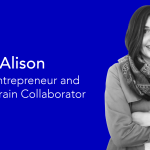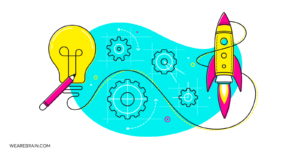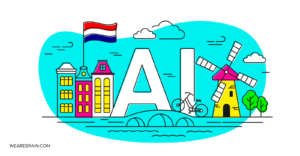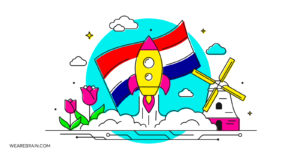How AI is transforming the healthcare industry — Part 1

If you’ve ever found a lump somewhere randomly on your body and then mentally started preparing your last will and testament due to the intense horror you find after Googling your apparent symptom, then you’re just like everyone else. Thankfully we now live in an age where there is an alternative to WebMD-induced panics and hysteria. AI is transforming the healthcare industry with the recent advent of medical chatbots which interact with users, educate and inform them on healthcare issues, and allay any potential trauma due to mis-self-diagnosis.
Most people wish they had their doctor’s mobile number on hand to WhatsApp them at any given time to seek their advice on all things healthcare. “Is this rash supposed to be there, Doc?” “How many times should I take the red pills?” If only. But a close second to this medical utopia comes in the form of AI powered medical chatbots.
Most healthcare bots are like pocket-sized doctors who help you find solutions to common symptoms through natural language processing. However, these bots are no replacements for real, experienced doctors and clinicians. In fact, these bots instruct you to book a doctors appointment for proper diagnosis. These bots are primarily focused on providing healthcare advice and information for patients who want to further inform themselves about their condition and people who want to illuminate the dim corridors of thorough medical understanding. Essentially, these medical bots are a more refined, yet not complete, self-diagnosis tool.
The world over, the general public are either misinformed or downright unaware of common illnesses, STDs and a wide range of preventative and curable diseases. Particularly in poor areas, access to proper medical care and information is staggeringly limited. These bots helps to not only assist in self diagnosis for people who are unable to get to clinics, but also to help inform them about good healthcare practices. The best thing is that these bots are mostly free, effectively democratising the spread of preliminary diagnosis and medical healthcare information en mass.
But these chatbots aren’t only confined to the medical self-diagnosis arena, there are bots for therapy and mental health too. Some bots are designed to act as your personal nurse and remind you when to take your pills, and other bots are there to listen to your problems and offer counsel and advice. With access to apps and bots now catering to our existential, biological and even our most primal needs, never before have we been so close to being a plugged-in society.
Who are the major players in healthcare AI?
Your.MD
This popular app uses machine learning and AI to give personalised health information to its users through the app’s chat service. Through this it recommends relevant products and services commonly associated with the user’s symptoms. By ‘learning’ medical literature covering thousands of medical conditions the app creates algorithms to provide users with recommendations and resources. This is achieved by the user entering their symptoms and receiving a list of related conditions and through a process of elimination conducted by the bot through a series of prompts, the user is able to identify their condition.
Florence
Florence is a Facebook messenger, Skype and Kik chatbot designed to be your personal nurse. Through AI and machine learning, Florence has the ability to assist users with self-diagnosis through large medical databases. Florence reminds users when to take their medication. You simply tell her the name of your medicine and how many times a day you need to take it and she will send you a chat reminder when you need to take them. Like any respectable nurse, Florence also monitors user’s health like heart rate, body weight and mood and helps them live a healthy lifestyle through tips and healthcare advise. Florence also assists users by informing them of the nearest medical facility.
Safedrugbot
Not all healthcare apps are targeted for patients, some are for healthcare professionals too. Safedrugbot is essentially a large chat messaging service offering support to health professionals who require data about the use of medication during breastfeeding. Combining both AI and machine learning capabilities the service offers recommendations from a large database of medical information.
Sensely
Sensely is an app for both patients and clinicians that uses algorithms trained on vast volumes of clinical content covering chronic disease information and common medical protocols. It interprets user’s symptoms based on these algorithms to recommend appropriate diagnoses. The platforms boasts a virtual medical assistant which uses text, speech, images and video. Furthermore, the platform can be integrated with electronic health records of user’s healthcare practitioners to provide continuity of care, allowing them to monitor users outside of the doctor’s rooms.
Izzy
Izzy is a Facebook messenger chatbot designed to be a user’s period pal. She handles the user’s periods by keeping track and reminding them of their menstruation dates and cycles and fertile windows. She also finds out how the user is doing during period pains and emotional times and offers information about menstrual and sexual health. Izzy continues to learn so the longer users use the app the more specific and personalised their experience becomes.
Although these chatbots are helping to revolutionise the medical and healthcare industry, it is important to remember that they are no substitute for the professional care doctors and clinicians provide. They have no empathy and they cannot develop a relationship with a patient. The nuances and subtleties of personal and professional medical care won’t be replaced by these innovative bots. However, they serve to inform people on healthy living practices, medical information and preliminary self-diagnosis that gives them answers immediately.
Mario Grunitz
Working Machines
An executive’s guide to AI and Intelligent Automation. Working Machines takes a look at how the renewed vigour for the development of Artificial Intelligence and Intelligent Automation technology has begun to change how businesses operate.







